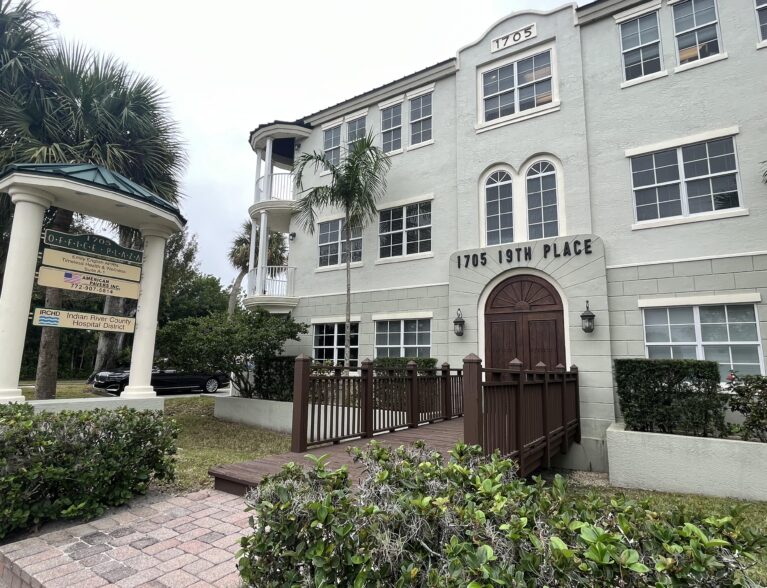
The Hospital District in January will be polling a wide swath of local residents seeking their opinions on all things healthcare as part of a data collection effort to assess the overall health and needs of the county taxpayers who fund its programs.
After a two-month break from political survey calls and robo-calls, Hospital District officials hope locals will answer their phones to participate, viewing it as important to include people of various ages and income groups from all over the county in the survey.
The calls will likely show up as a local, unknown number on residents’ caller ID, and could be received on both land line and mobile phones. The call center, based in Gainesville, employs a great number of University of Florida students who will manually dial people, so the survey will not be robo-called.
The Hospital District chose Tallahassee-based Clearview Research out of three bids, and awarded them a $30,000 contract for 600 completed surveys, which will require thousands of phone calls to accomplish.
“They have experience in healthcare, they have worked with United Way in the past and they really knew their stuff,” said District Executive Director Frank Isele about the Clearview Research group.
Questions will gauge the survey respondent’s satisfaction with the healthcare they receive in Indian River County, from the ability to get an appointment with a local doctor or urgent care center in a timely manner, to the affordability of prescription drugs and whether or not the types of care needed are available locally at a reasonable cost.
Other randomized questions may cover dental care, mental health care, primary care, emergency room care, and how often the person surveyed seeks care from a medical professional.
As proposed, the survey will not ask about any specific healthcare providers or hospitals by name.
It will be designed in a way that Indian River County’s results for healthcare satisfaction can then be compared with other communities in Florida, and across the nation.
Clearview Research President Steven Vancore said he’s been in the business since the 1980s, back when he built Florida’s first statewide voter file. Vancore said he’s conducted hundreds of polls in Florida, and has represented numerous healthcare interests and the Marion County Hospital District.
“I don’t think there’s a county or a city we haven’t worked in, in one capacity or another,” Vancore said.
“What we’re trying to do here is to get a baseline understanding of Indian River’s general community’s baseline of their healthcare needs and how satisfied they are,” Vancore said. “We’ve broken it down into a number of areas to try to understand what’s working for them, what’s not working for them.”
Survey takers will ask the person’s age, ethnicity, household income, whether there are children younger than 18 years old in the home, what type of health insurance, if any, the household residents have, and how they obtain that coverage.
“This survey will generate a yearly data set, with responses serving as one central data point to help us track progress on both the qualitative and the quantitative elements of our strategic goals,” Isele said in his report to the trustees. The survey data will be used in conjunction with monthly and quarterly data available to the district, along with historical data that’s been collected every three to four years.
Each year, the Hospital District must file a report with the State of Florida outlining its activities, how it used taxpayer funds and how it is performing based upon goals set for the community.
Over time, the data collected will help track how satisfied or dissatisfied local residents are with their access to a wide range of affordable, good-quality healthcare options for themselves and their families.
The trustees asked a variety of questions of Vancore about the survey process. Chairwoman Marybeth Cunningham wanted to make sure the people answering the phone are from Indian River County and Vancore said his database is cross-referenced with the county voter files, plus an initial question will verify that the person lives in Indian River County before proceeding with the survey.
Trustee Karen Deigl wanted to make sure the questions would be phrased in a general enough way that the survey would not simply pick up on complaints or attitudes about Cleveland Clinic.
In general the trustees wanted to make sure the survey will poll a representative sample of Indian River County.
Vancore acknowledged resistance to polling is real across the board, and that it takes even more diligence to reach a significant number of people in the indigent population.
“We live in a constant state of polling fatigue because we have email fatigue and texting fatigue because people over-use those technologies,” Vancore said, adding that using text messages to initiate a survey tends to self-select for people who are upset about something regarding their healthcare and they want to vent.
The board of trustees whch decides how to use the survey results may be a slightly different elected body, as two incumbents, Cunningham and trustee Barbara Bodner, did not run for re-election this year and four total seats were up for grabs.
Dr. Charles Mackett was elected to Seat 3 unopposed, Seat 1 has three active, qualified candidates running, and incumbents Deigl and Dr. William Cooney both faced challengers this week. The new board will be seated in January.



